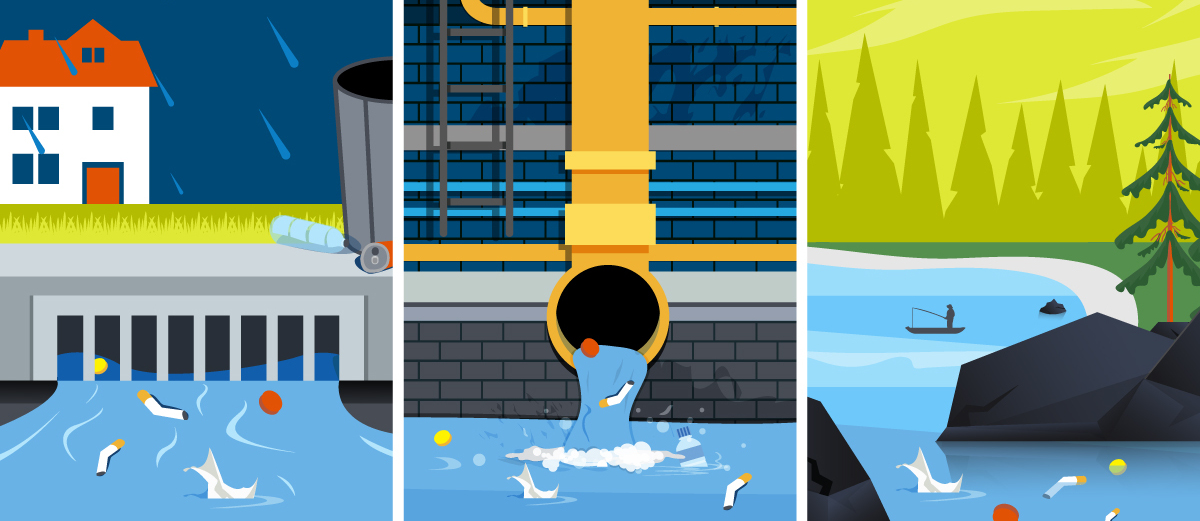
Trash picked up anywhere can help us have cleaner beaches and lakes everywhere.
While the journey of a piece of trash can be as short as a few feet – from a hand to the beach – some trash can travel miles via storm sewers before it hits the shore. Storm sewers throughout the region that drain toward the Great Lakes can become highways for the bottle caps, cigar tips, cigarette butts, and straws that are among the top 10 items found at Adopt-a-Beach cleanups.
How trash travels from street to shore
While the majority of beach litter is left by beach goers, research has found that rivers and streams flowing into the Great Lakes also transport trash.
During storm events, litter left on streets is washed into storm drains. Those drains don’t always go to wastewater treatment plants. Sometimes they empty directly into nearby streams and rivers or even into the lakes. Especially likely to become traveling trash are the small broken bits of plastic and styrofoam that are the number one item Adopt-a-Beach volunteers find.
Neighborhood cleanups help keep beaches clean
This year Adopt-a-Beach volunteers have the option to join cleanups on the beaches of the Great Lakes and in their own neighborhoods, whether that’s a city block, suburban cul-de-sac, country road, or anywhere in between.
For some, the COVID-19 pandemic is one reason to organize a neighborhood cleanup. Many people have a desire to volunteer, but this year they have to balance that desire with keeping themselves and their families safe.
“But organizing community cleanups is about more than the pandemic,” says Tyrone Dobson, the Alliance’s Senior Volunteer Engagement Manager. “It’s also the result of broader thinking about stopping litter at its source.”
Others around the country are also thinking about litter more broadly. For example, this year the California Coastal Commission declared “beach cleanups start at your door,” encouraging participants to clean their neighborhoods to help protect the Pacific coast.
“Very few good things have come out of the past year,” says Volunteer Engagement Associate Olivia Reda. “But one positive is that the pandemic has made us think about how we can share the good with the most people. If neighborhood cleanups are a way we do that, then that’s a victory.”
